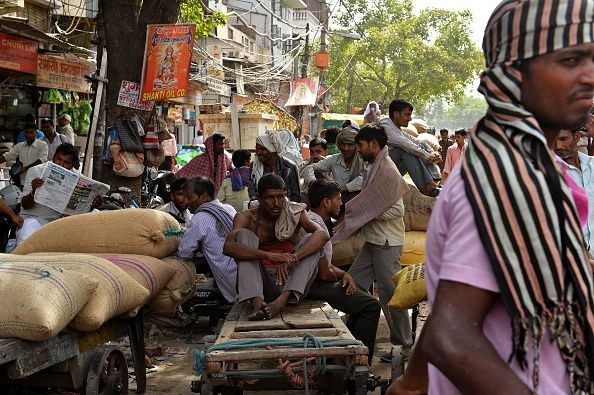India Heat Wave: Death Toll Passes 1,000 With Scorching Temperatures; No Relief In Sight

The death toll from a crippling heat wave in India has passed 1,000 people in just one week, the BBC reported Tuesday. The country reportedly has seen temperatures approaching 120 degrees Fahrenheit in some areas, with southern states hit particularly hard.
At least 1,118 people have died in the last week in the southern states of Telangana and Andhra Padesh, the BBC reported. Authorities said 852 people have died in the heat wave in Andhra Padesh while 266 have died in the bordering Telangana, CNN reported. The temperature hit 117 degrees Fahrenheit -- the highest maximum in India -- at Angul in the state of Odisha Monday, B.P Yadav, director of the India Meteorological Department, told CNN. Yadav told CNN winds have worsened the "extreme, dry heat."
Authorities have advised the best course of action is to stay indoors while hospitals are on alert to treat heatstroke patients.
"The state government has taken up education [programs] through television and other media to tell people not to venture into the outside without a cap, to drink water and other measures," P. Tulsi Rani, special commissioner for disaster management in Andhra Pradesh, told AFP. "We have also requested NGOs and government [organizations] to open up drinking water camps so that water will be readily available for all the people in the towns." Roads in New Delhi have melted under the intense heat, AFP reported.
One-third of the country has reliable access to electricity, CNN reported, so poorer areas have suffered disproportionately. Many people without the means to cool their homes are seeking shelter in shops and malls, CNN reported. Even those with electricity have reportedly seen power come and go.
High temperatures could continue for days. The BBC reported temperatures dropped slightly in Telangana Tuesday and the heat is expected to begin to fade in Andhra Pradesh by the end of the week. Another heat wave, however, could soon follow, CNN said.
© Copyright IBTimes 2024. All rights reserved.






















